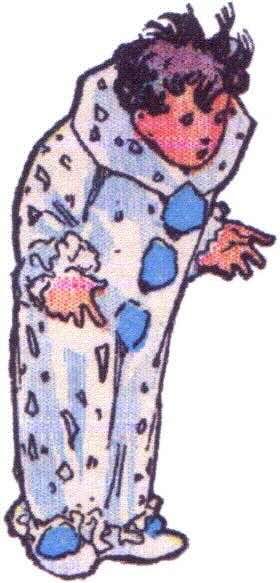Sometimes, when you’re writing a poem or a story and you revise it, the revision is worse than the original. You know that you can’t stay with the original, that it’s lacking some expression of its essence, but the revision has actually taken you further from that essence. But if you’re patient, you can perform a sort of triangulation, so that the bad revision leads you not back to the original, but to a new revision that liberates whatever was trapped in the first version. Call it the dialectic, or the fall from innocence into experience, or just mutter to yourself as you stare grimly at your intransigent story that it must get worse before it gets better.
That’s where we are, as a nation.
In 2016 we were shocked—I was shocked. I’m from northern New Jersey; I grew up with Donald Trump, with his gilded hair and multiple wives and even more multiple bankruptcies. He was a figure of fun, a harmless troll, an honorary member of Howard Stern’s crew. I thought I knew the guy: a clown. No one, I thought, would ever take this man seriously as a businessman, let alone as a political leader. There’s no way. Well, we know how that worked out. And like so many other liberals, I spent the next four years glued to my phone, horrified and maybe a little titillated by the sheer spectacle created by the creature of pure id who’d come to occupy the White House. I say occupy because I never for a second accepted his political legitimacy, or thought of his followers as anything other than dupes and deplorables. I did not see him as the leader of a movement, but as the dog who’d caught the car. In the liberal, wealthy enclave I call home we nodded to each other’s bumper stickers and house signs: Not my President, In this house we believe… We believed that we were living through a historical aberration, and when Joe Biden won in 2020, I like millions of others sang in my heart: Ding-dong, the wicked witch is dead!
Now we know how that worked out.
Donald Trump is America; America is Donald Trump. The movement he leads is very real, and more powerful than ever. And our failure, the failure of bien-pensant liberals and of the identitarian left, stares us in the face.
Coming up to the election I had a bad feeling, a 2004 feeling. That was the last time the sheer vulgar criminality of a popular-vote losing Republican president moved my introverted self to go knock on doors for a candidate. Back then it was for John Kerry in Pennsylvania; this time it was for Kamala Harris in Wisconsin. On neither occasion did I meet, let alone persuade, any undecided voters. Everyone who came to the door said, wearily, that they had voted already, and for the right person. At the staging area for each event, organizers in fleece vests promised us we were going to win, and everybody cheered. But the best lack all conviction. And it’s clear today that Kamala Harris—or at least the Harris who had only a hundred days to form a message, hampered by ties of loyalty and the apparatus of someone else’s campaign—was far from the best. Or maybe she, like Kerry, simply couldn’t overcome the headwinds of fear, and a chosen scapegoat, and the bullheaded refusal of Americans to sit with their vulnerability and their grief. Back then, it was 9/11 and “terrorists”; this time it was COVID and immigrants. We tamped down our fear with fear.
I don’t know. In 2004 I could not have imagined Barack Obama, who with all his flaws and temperamental conservatism persuaded me for a while that the progressive spirit of America I’d imbibed as a child from Marlo Thomas and Alan Alda and scratchy LPs of speeches by Martin Luther King was alive and well. The arc of the moral universe, blah blah blah. Maybe some similarly inspiring figure waits in the wings, to make us believe again in 2028. But I doubt it. After such knowledge, what forgiveness? Such knowledge, I mean, of ourselves.
There is something bracing about contact with reality, even if that reality is terrifying. I feel, in this moment, awake.
It’s a funny state of being for a dreamer.



"We tamped down our fear with fear." Well said, friend. Sending hugs.